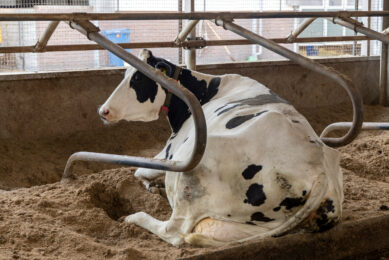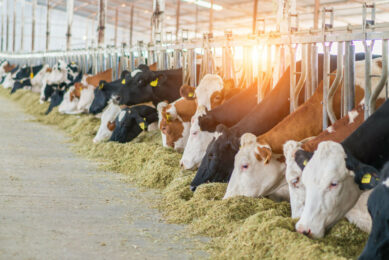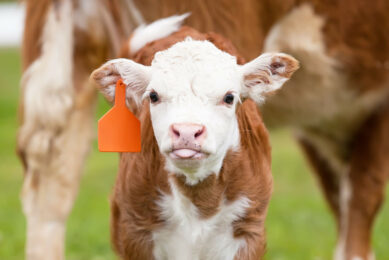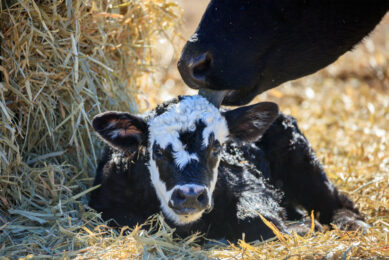Dairy welfare row erupts following TV investigation
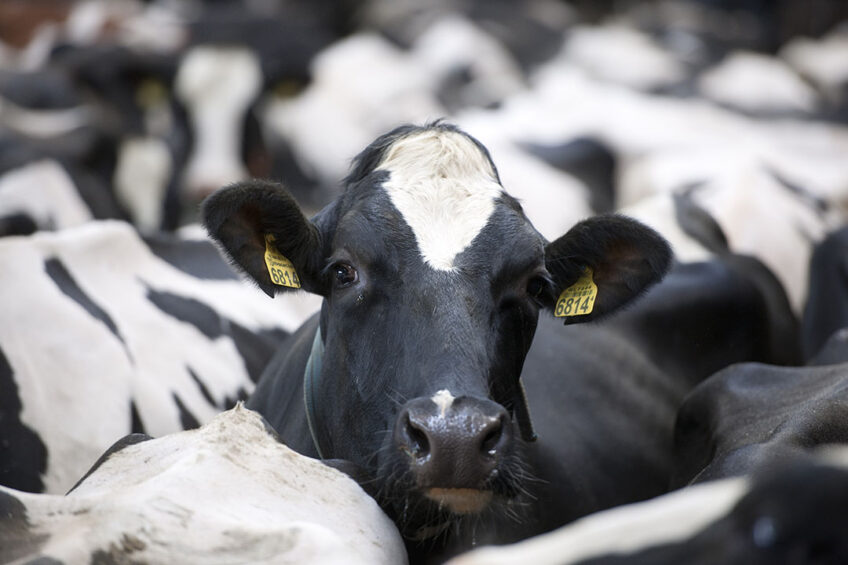
Battlelines have been drawn up following a controversial television investigation depicting cruelty to a herd of Welsh dairy cows.
The BBC Panorama programme, which is watched by millions of viewers, showed distressing footage of cows being punched, kicked and hit with metal shovels. It also questioned cow and calf welfare and lameness.
The footage was filmed covertly by international animal protection organisation, Animal Equality, and has resulted in an ongoing investigation by Carmarthenshire County Council’s animal health department.
Milk from the dairy herd near Trelech goes to Freshways, the UK’s largest independent wholesaler and processor, which distributes dairy products to a number of supermarkets including Londis and Budgens.
Leading veterinary surgeon and broadcaster, Marc Abraham, said the treatment was “some of the most alarming animal abuse and neglect that I have encountered during my time”.
Breach in standards
“There are a number of concerning incidents where appropriate medical care was not provided to sick, lame and injured cows, as well as several occasions where cows were struck violently and repeatedly. There is no doubt in my mind that these cows would have suffered significantly and their prolonged pain was entirely avoidable,” he added.
Assurance company Red Tractor said the footage showed serious breaches of Red Tractor standards and the law, demonstrating a systematic disregard for animal welfare by those with a duty to care. It said the unacceptable actions of staff on one farm in no way represented the vast majority of UK dairy farmers or British agricultural practice.
UK farmers operated to some of the highest welfare standards in the world alongside the credible quality assurance schemes and initiatives that exist.
Freshways said that following an investigation, the producer has had his Red Tractor certification withdrawn and has not supplied the firm with any milk following the programme.
But the Royal Association of British Dairy Farmers said the programme, “A Cow’s life: The True Cost of Milk?” was disappointed at the sensationalist picture painted of the industry. Managing director, Matt Knight, said UK farmers operated to some of the highest welfare standards in the world alongside the credible quality assurance schemes and initiatives that exist.
Dairy cow lameness
“Lameness was an issue highlighted on the programme with one vet suggesting up to 30% of cows expected to be lame in the UK. The industry is working hard to overcome lameness with diagnostic, early warning tools helping highlight the issues early.”
Knight said he was sad the BBC had chosen to highlight one farm where “inexcusable abuse was witnessed, as this was not representative of our industry.”
The programme did include the Ethical Dairy in Scotland, where calves are kept with their mothers, showing high welfare, but Knight said the system was not commercially viable for most dairy farmers.
“The programme did, however, highlight the fact that many farmers are losing money or making very little money, which is important as the value of money is underestimated by the vast majority of consumers both in monetary and nutritional terms. It is time milk and dairy products are valued correctly.”
Time for change
One large US dairy business currently uses an independent firm to install CCTV and monitor it, flagging up areas of concern back to the farm so incidents could be tackled quickly. The firm said it was affordable and doable.
Amy Jackson, food and farming PR professional, told Farmers Weekly, that it was time for change. “There are unacceptable practices that need to be called out and stopped. Zero tolerance…. It means supply chains and retailers working collaboratively with farmers so they have the resources and abilities to do their best. It means end customers paying what’s needed to ensure investment can get back on farm. It means all the supply chains taking responsibility and doing better.”
Join 13,000+ subscribers
Subscribe to our newsletter to stay updated about all the need-to-know content in the dairy sector, two times a week.



